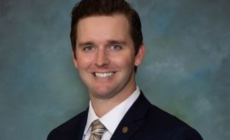-
Virginia City Councilman Is Set on Fire in Attack, Police Say - 11 mins ago
-
Feds arrest ex-NBA star Gilbert Arenas for ‘high-stakes illegal poker’ - 29 mins ago
-
Braves’ Chris Sale Could Be Out for Season After Unfortunate Update - 36 mins ago
-
Park Avenue Killer Bought Rifle for $1,400 From His Casino Boss - 54 mins ago
-
Jhoan Duran Trade Sweepstakes Gaining Steam As Deadline Nears - about 1 hour ago
-
Canada’s Measles Cases Surpass U.S., Alberta Officials Push for State of Emergency - 2 hours ago
-
Danville, Virginia City Councilman Set Ablaze After Being Doused with Gasoline - 2 hours ago
-
Angels Make Surprising Trade for Luis Garcia, Andrew Chafin - 2 hours ago
-
Pilots for Army Black Hawk Discussed Changing Course Before Crash - 2 hours ago
-
Pittsburgh Steelers QB Aaron Rodgers Doesn’t Hold Back About Mike Tomlin - 3 hours ago
Mark Cuban Confronts Fellow Billionaire Knocking Student Debt Forgiveness
Billionaire Mark Cuban confronted fellow billionaire Bill Ackman online on Saturday after he criticized President Joe Biden’s forgiveness plan for student loan debt.
Biden recently canceled student loan debt for a further 277,000 people, bringing the total number of Americans approved for debt relief during his administration to 4.3 million. The latest debt relief applies to people enrolled in the federal Saving on a Valuable Education Plan (SAVE), or people who were approved for relief because of fixes made to Income-Driven Repayment Plans and Public Service Loan Forgiveness.
Read more: Student Loan Forgiveness Updates and FAQs
According to the U.S. Department of Education (DOE), 7.5 million borrowers are currently enrolled in the SAVE Plan, an income-driven repayment (IDR) plan targeted to low—and middle-income borrowers. Those who were on the REPAYE Plan were automatically enrolled in the SAVE Plan when it was launched last August.
Last June, the U.S. Supreme Court struck down Biden’s initial plan, a $400 billion proposal to cancel or reduce student loan debt that a majority of justices said required congressional approval.
Republicans have strongly opposed any student debt cancellation, saying it’s unfair to those who have already paid their loans or didn’t go to college because they felt they couldn’t afford to take on such a huge debt.
“Student loan forgiveness sounds great for borrowers overburdened with high interest rate debts they cannot repay. The problem is that the subsidy appears to go principally to more affluent families at the cost of burdening those who didn’t attend college or whose parents saved to send their kids to school. It should be illegal for a president to buy votes by transferring funds from certain citizens to others he believes are more likely to support him in an election,” Ackman, the founder and CEO of hedge fund management company Pershing Square Capital Management and a vocal Biden critic, wrote on X, formerly Twitter on Saturday.
In response to Ackman’s remarks, Cuban also took to the social media platform to point out tax cuts that former President Donald Trump provided during his presidency. “Like Trump has used Tax Cuts for folks like you and me?” he asked.
Newsweek has reached out to Biden and Cuban via email for comment.

Megan Briggs/Getty Images
Under his presidency, Trump signed the Tax Cuts and Jobs Act 2017 into law. The act slashed most of the seven income tax brackets, including the top rate, and are due to expire in December 2025. An analysis of the tax cuts by the progressive-leaning Institute on Taxation and Economic Policy (ITEP) concluded that almost half of the benefits of the act went to individuals earning more than $232,000 per year.
Read more: 2023-2024 Tax Brackets and Federal Income Tax Rates
Trump pitched the Tax Cuts and Jobs Act 2017 as an economy-boosting tax cut to benefit the middle and working classes that would pay for itself. However, the deficit ballooned to near $1 trillion. Around the time Congress passed the tax cuts, an analysis by the Tax Policy Center predicted that the poorest would see the lowest proportional benefit and the richest would benefit more than anyone else.
According to the nonprofit publication Capital & Main, a group of the most profitable corporations in 2018 paid an effective tax rate of 11.3 percent, the lowest rate in decades and almost half the rate set by the new law.
In another X post on Saturday, Cuban added: “Now do corporate. Whether the cuts paid for themselves. The wage growth he said would happen after the cuts, but didn’t. The greater disparity in incomes when hardly any of the corporate tax cuts went to workers…His refusal to raise any taxes or create revenue sources when the pandemic hit. His ego tariffs that cost everyone money and almost killed farmers till he bought their votes with subsidies. His slow response to the pandemic, saying that testing only made the numbers go up. The fact that the tax cuts of those making under 60k expire next year.”
“Biden is far from perfect. This isn’t about that. This is the hypocrisy of the point that trump was not trying to buy votes any way he could, like Biden is now. Biden is just smarter about how he is doing it,” he concluded.
In a statement released by the White House following the recent student loan debt cancellation, Biden said, “From day one of my administration, I promised to fight to ensure higher education is a ticket to the middle class, not a barrier to opportunity. I will never stop working to cancel student debt—no matter how many times Republican elected officials try to stop us.”
It is part of an effort by Biden’s administration to push down the level of collective student debt nationwide, which currently stands at $1.6 trillion, according to data from the Federal National Reserve.
The recent cancellation comes after more than 28 million federal borrowers began making payments again in October 2023 after Congress ended a pause on loan payments and interest that had lasted over three years in June 2023, the duration of the pandemic.
Uncommon Knowledge
Newsweek is committed to challenging conventional wisdom and finding connections in the search for common ground.
Newsweek is committed to challenging conventional wisdom and finding connections in the search for common ground.
Source link



















